Working from home is hard. It's a privilege most people are not able to have until maybe recently with the global pandemic. There's plenty of distractions around to keep you unproductive. Here are some tips for working from home that I felt helped me complete my task.
This feature originated in Linux but was adopted in Windows 10 and also on OSX El Capitan, Yosemite, Mavericks, AND Mountain Lion. All three have the same function; allow you to have multiple virtual desktops.
With multiple desktops, you can keep browsers and programs open for work, personal, or porn whatever else. Keeping things separate across multiple virtual desktops allows you to focus on the task at hand and not get distracted.
I keep chrome open with educational documents, my work, and my work tools on my main virtual desktop. On my secondary, I have Spotify and chrome opened with my emails, chats, and Youtube.
I complete my task at hand and then reward myself by switching virtual desktops to check in on everything else.
The keyboard shortcut for the task view is Windows Key + Tab. You can also enable the task view shortcut on your taskbar. Right-click anywhere on the taskbar and click on Show Task View Button.
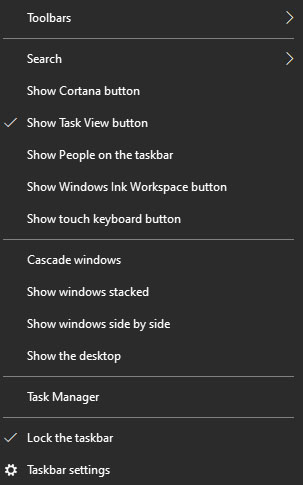
The task view button looks like this; the button on the right:![]()
From the task view, you can select which desktop to jump to. You can drag your browser window or applications to the respective virtual desktop for productivity or play.
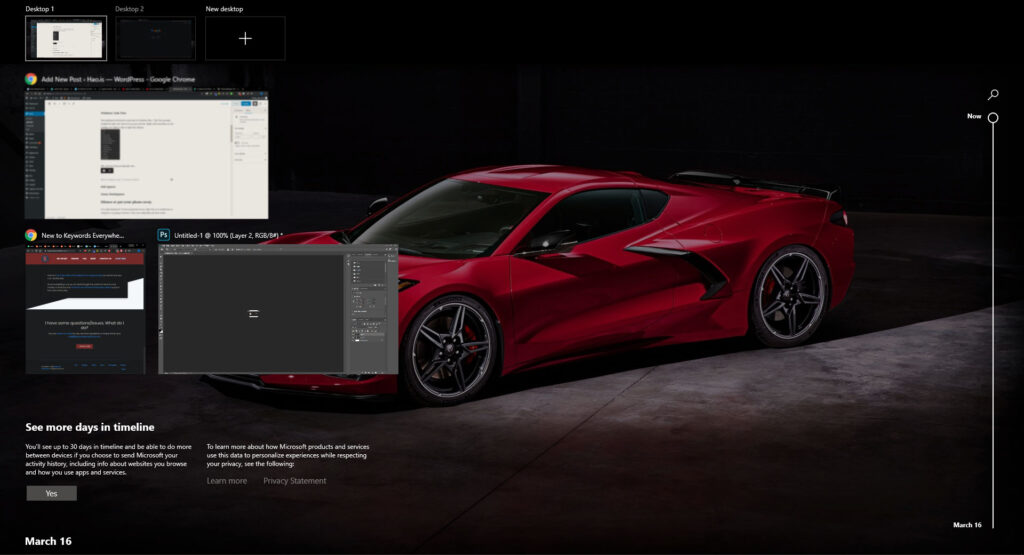
Click on the Apple menu and then to System Preferences and finally Mission Control. Here, you can set the shortcut for your spaces. Read more about OSX Spaces here.
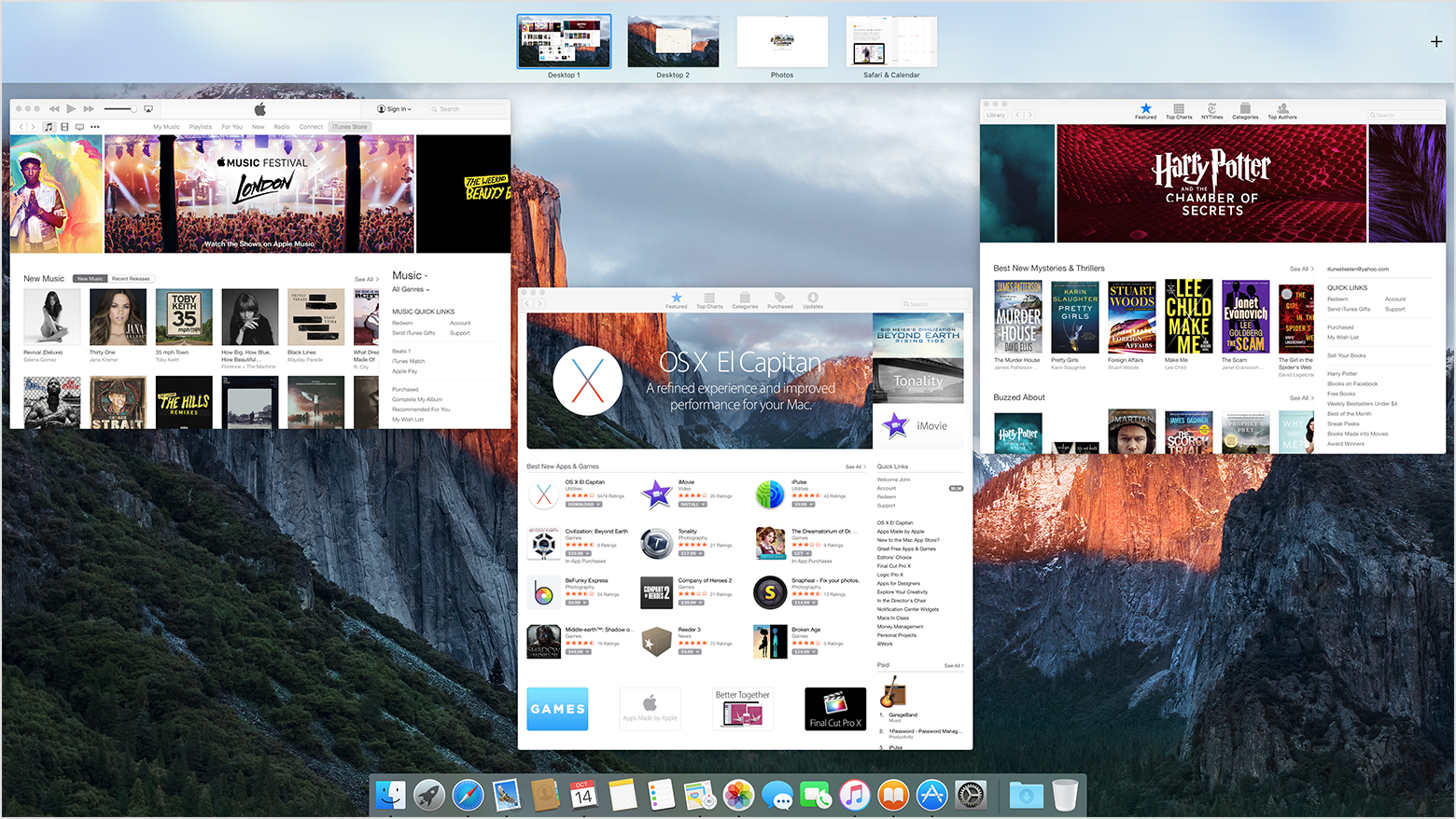
Workspaces have been around for ages. I'm sure if you're a Linux user, you're well aware of how to navigate workspaces. If not, check out this link.
If virtual desktops don't stop you from getting distracted, creating multiple computer logins for work and personal purposes will. Make it a hassle for yourself to check your email and chats.
This is pretty self-explanatory. If you don't need the internet to complete your task, simply turn it off. You can disable the internet directly from your computer rather than the modem or router.
If you're ever worked as a consultant with billable hours, you've used software to track your time. In this case, rather than tracking your time for billing, track your time to see how much time you waste.
I use Clockify to track the time it takes me to complete a task. If I get sidetracked, I'll time how long I spend getting sidetracked. At the end of the day, you'll see where you need to make adjustments.
Clockify is available as desktop apps, browser apps and phone apps.
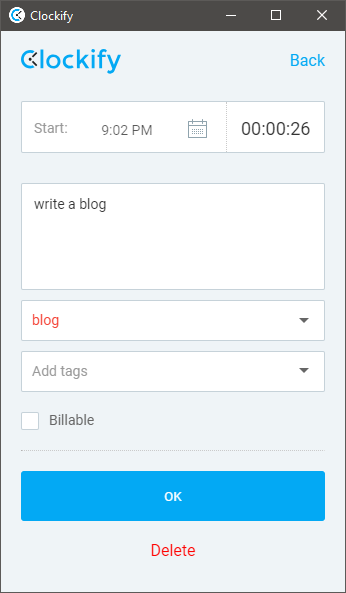
Let's say I need to write a blog. If I don't give myself a deadline, chances are, I'll spend a few hours or days on it. However, if I allocated one hour to the blog, I'll probably get it closed to done in that hour. Without time limits, I might get distracted on something else or take more time than necessary.
Think back to your school days. When a teacher assigned a task that is due by the end of the week. Did you complete the task right away when it was assigned? Or did you drag the task out or possibly waited till the last minute to complete the task?
Setting timers or deadlines changes your mentality towards the task at hand.
I'm easily distracted. If I see my phone screen wake due to a notification or vibration, I'm going to check it. This can totally kill your flow when working.

The best thing to do is to silence your phone or leave it in another room. It's hard but it'll keep you more productive.
If you have a big tedious project, little wins matter. It feels good to be able to check things off once completing a task. I recommend breaking down big projects into small parts. When you complete a small task within the big project, you feel a sense of accomplishment. Whereas if you don't break down the project, you may feel like nothing was accomplished or completed by the end of the day. This can be disappointing and discouraging. Little wins matter.
As an example, if I had to research and blog about the best mid-sized truck. I would break down the project into small tasks such as: making a list of trucks; pricing, options available; independent reviews; blogs for truck a, b, c, etc.; gathering free to use pictures; you get the point. Break it down and check it off as you go along.
I suggest using apps like Microsoft To-Do or Google Keep. Both apps allow you to create a check-off list. You can find both apps available in your phone app store. It's also available on the web and as a desktop application as well.
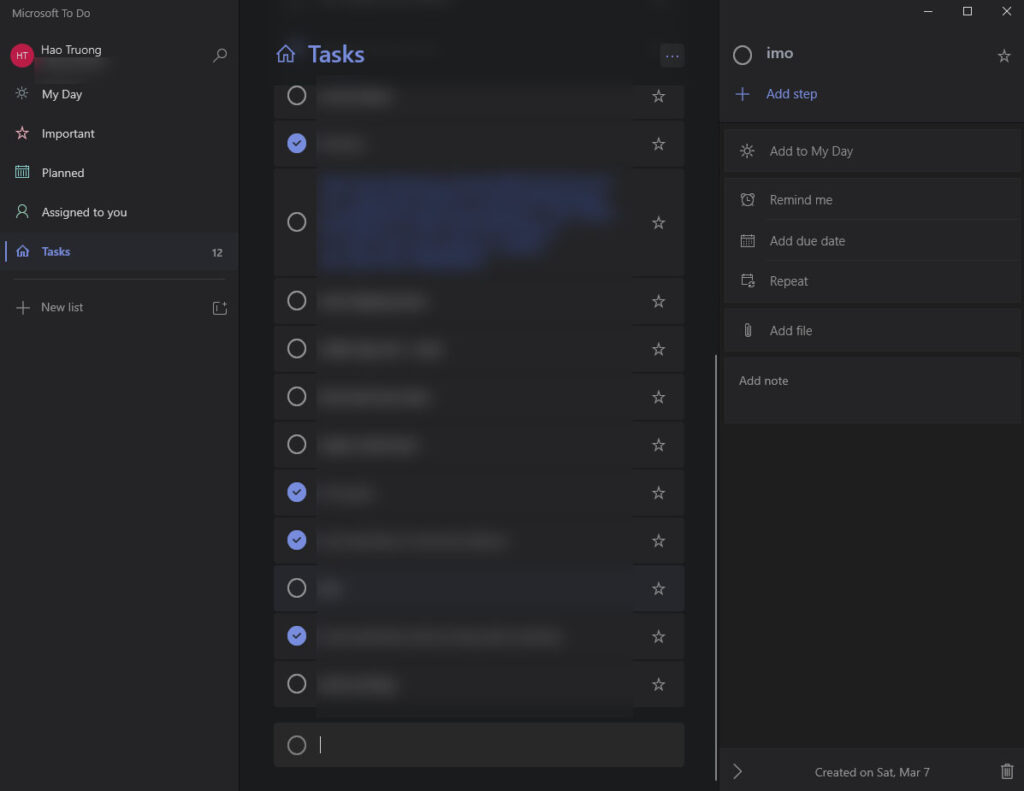
There's something psychological about having a separate workspace from your play space or hang out space. If you set up a space that is only dedicated to work, you're more likely to be successful and productive. Whereas if you work in the same place you hang out, you're more likely to get distracted.
For me, I use a laptop stand and sit in a chair around the house. Or I'll set the laptop stand on a table and stand while working. Prior to the quarantine, I would drive to a local coffee shop. Now, I drive to a park or trail and sit in my car working on my laptop.
Find a space that works for you and don't do anything else besides work in that space.
Keeping a routine also helps you psychologically. Set a schedule and follow through. This will train your body to begin the day and complete the task at hand.
For me, I wake up every morning around 6 am. Before I do anything else, I check my phone for anything important. I do 10 minutes of meditation before I get out of bed. After meditation, I take a shower and get dressed as if I'm going out. Then, I make a mug of coffee using a Chemex-style drip brewing. From here, I'm ready to start my day.
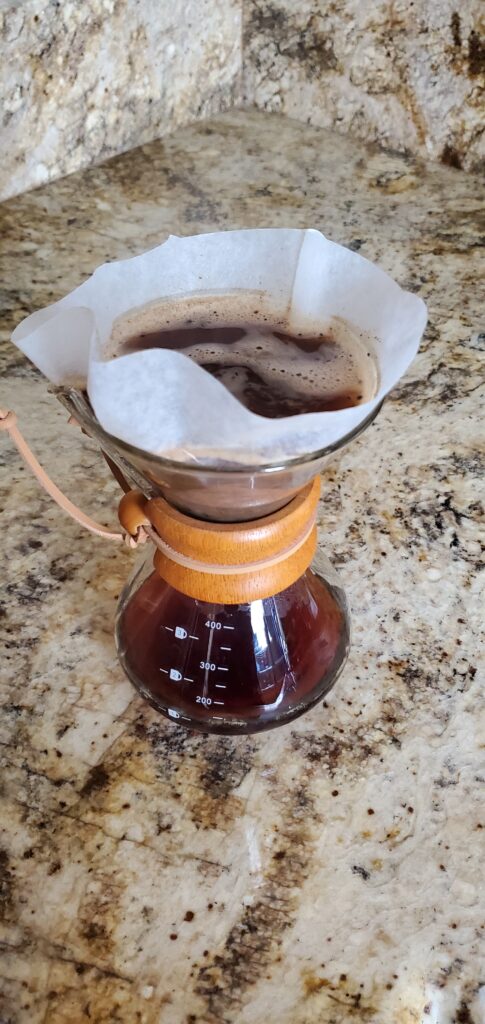
Hopefully these tips for working from home will help you be more productive. If not, you probably shouldn't be allowed to work from home. 😉
thanks for sharing this tips is really helpful
do you have othere reference?
Like!! I blog frequently and I really thank you for your content. The article has truly peaked my interest.